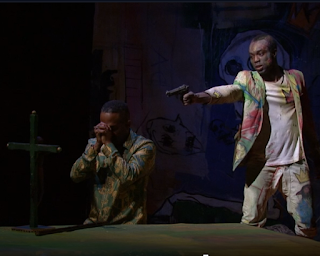Changing Interpretations Over Time: Matthew Arnold
Matthew Arnold (1822-1888) is probably best known as a poet, and in particular for the poem 'Dover Beach' which you will almost certainly encounter if you go on to study English Literature beyond A Level. The poem explores a nightmarish world from which the old religious certainties have disappeared - and is therefore sometimes celebrated as an early, perhaps the first, example of the 'modern' sensibility; so although he is firmly 'Victorian' in terms of era, he might be considered to anticipate the Modernist movement.
He became Professor of Poetry at Oxford in 1857, and was the first figure to be elected to this position who delivered his lectures in English rather than in Latin! As well as this, Arnold was a schools inspector for more than three decades. Partially to blame for the existence of Ofsted, then?
Finally, he was also the owner of an impressive set of sideburns. A quick Google search will lead you to a host of images of their changing length and style. This is my personal favourite:
Because he is writing about one of his own poems in the reference below, you may have to work a little harder to decipher the ideas he is suggesting about Hamlet.
MATTHEW ARNOLD: from Preface to Poems, 1853, referring to his dramatic poem, 'Empedocles on Etna'
I intended to delineate the feelings of one of the last of the Greek religious philosophers, one of the family of Orpheus and Musaeus, having survived his fellows, living on into a time when the habits of Greek thought and feeling had begun fast to change, character to dwindle, the influence of the Sophists to prevail. Into the feelings of a man so situated there entered much that we are accustomed to consider as exclusively modern; how much, the fragments of Empedocles himself which remain to us are sufficient at least to indicate. What those who are familiar only with the great monuments of early Greek genius supposed to be its exclusive characteristics, have disappeared; the calm, the cheerfulness, the disinterested objectivity have disappeared: the dialogue of the mind with itself has commenced; modern problems have presented themselves; we hear already the doubts, we witness the discouragement, of Hamlet and of Faust.
What are the key ideas in Arnold's reference to Hamlet? Summarise them in your own words.
Might they still have resonance today? Why/not? Give examples from Hamlet to support your ideas. How does this compare with some of the perspectives that we have read previously?
Is there a memorable, standout phrase?
He became Professor of Poetry at Oxford in 1857, and was the first figure to be elected to this position who delivered his lectures in English rather than in Latin! As well as this, Arnold was a schools inspector for more than three decades. Partially to blame for the existence of Ofsted, then?
Finally, he was also the owner of an impressive set of sideburns. A quick Google search will lead you to a host of images of their changing length and style. This is my personal favourite:
Because he is writing about one of his own poems in the reference below, you may have to work a little harder to decipher the ideas he is suggesting about Hamlet.
MATTHEW ARNOLD: from Preface to Poems, 1853, referring to his dramatic poem, 'Empedocles on Etna'
I intended to delineate the feelings of one of the last of the Greek religious philosophers, one of the family of Orpheus and Musaeus, having survived his fellows, living on into a time when the habits of Greek thought and feeling had begun fast to change, character to dwindle, the influence of the Sophists to prevail. Into the feelings of a man so situated there entered much that we are accustomed to consider as exclusively modern; how much, the fragments of Empedocles himself which remain to us are sufficient at least to indicate. What those who are familiar only with the great monuments of early Greek genius supposed to be its exclusive characteristics, have disappeared; the calm, the cheerfulness, the disinterested objectivity have disappeared: the dialogue of the mind with itself has commenced; modern problems have presented themselves; we hear already the doubts, we witness the discouragement, of Hamlet and of Faust.
What are the key ideas in Arnold's reference to Hamlet? Summarise them in your own words.
Might they still have resonance today? Why/not? Give examples from Hamlet to support your ideas. How does this compare with some of the perspectives that we have read previously?
Is there a memorable, standout phrase?




Comments
Post a Comment